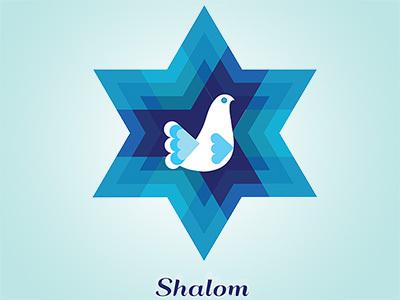More Than Tolerance


More Than Tolerance

Many of us are still reeling from the devastating news of the synagogue massacre in Pittsburgh. Our hearts go out to the family members of the victims and our prayers are with the injured and all who are in need of healing.
The Jewish Community is shaken by the event, which is the most violent incident against Jewish Americans in the history of the United States. We are devastated that this has happened. The Los Angeles Jewish Home's Holocaust survivors are particularly upset by the news. If only the attack of the Tree of Life congregation was in a vacuum, but we have learned there was a 58% increase in anti-Jewish hate crimes just last year. Hate crimes against many other groups have increased, too.
What to do about this growing climate of intolerance of the "other"?
George Washington put the answer so brilliantly when he wrote a letter to the Touro Synagogue of Rhode Island in 1790. He said, "It is now no more that toleration is spoken of, as if it was by the indulgence of one class of people that another enjoyed the exercise of their inherent natural rights. For happily the Government of the United States… gives to bigotry no sanction, to persecution no assistance."
George Washington promised us an America where intolerance would be abolished. And he went even further. He believed that tolerance was not enough. Because tolerance is the idea that the majority of the people somehow have the ability to "tolerate" a minority they may even dislike. Washington was effectively asking, "Who are you to tolerate them?" Rather, we all have equal and inherent rights. We are all entitled to safety, freedom and respect.
Has the America of 2018 forgotten this 1790 ideal and abandoned George Washington's promise? Perhaps. But Judaism has not.
Everyone is familiar with the commandment from the Torah to "Love thy Neighbor" (Leviticus 19:18). And there is that old joke that it is easy to love humankind but hard to get along with the guy next door.
Torah commands us to love our neighbor and, even more importantly, to love the stranger! We must not just tolerate, but love the other: love the one who is different; love the one with a different skin color; love the one who has an accent; love the one with different customs; love the one with different beliefs; love the one who is not from here.
Has the America of 2018 forgotten these ideals of tolerance and love which are echoed not only in Jewish ethics but in the principles of all the major religions? Perhaps, but perhaps not.
Did you hear about Wasi Mohamed, executive director of the Islamic Center for Pittsburgh? He announced funds were being raised by the Muslim community toward the care and support of the local Jewish community of Pittsburgh. Indeed, as of October 29th, two Muslim organizations raised nearly $200,000. One of the fundraisers, Tarek El-Messidi, posted these words, "Muslims: Let us stand with our Jewish cousins against this senseless, anti-Semitic murder." I am so touched. Now that is America!
At this time of concern and fear, we need to take seriously the rise of anti-Semitism, specifically, and of bigotry in general. But we also need to celebrate the solidarity of the entire Jewish community and take in the outpouring of love from our fellow citizens who are expressing their friendship and concern. We will not be intimidated and we will not give in to fear. As our people have always done, we will respond with courage, love and hope. We will remember we are not alone. We will overcome this together.